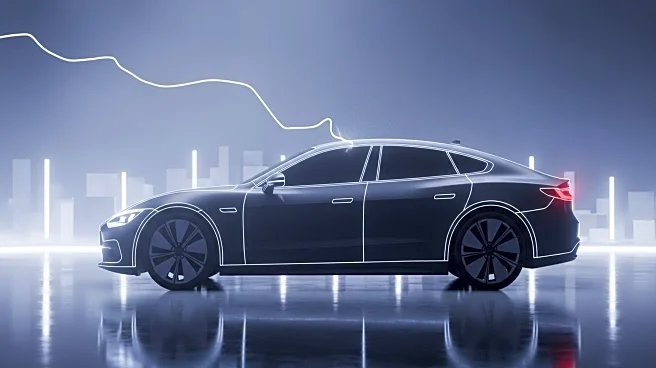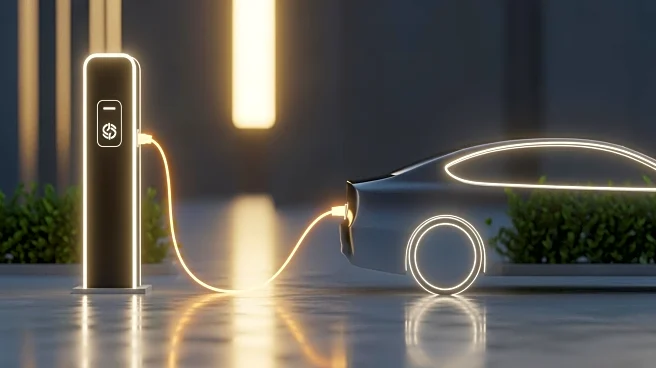What is the story about?
What's Happening?
A 2023 BMW i7 xDrive60, originally purchased for $131,945, was recently sold for $57,751, marking a 56% depreciation in just two years. The i7 was BMW's first 7 Series model to feature an all-electric powertrain, boasting 500 horsepower and equipped with luxury features such as the Sports Package Pro and Driving Assistance Pro Package. Despite its high-end specifications and condition, the vehicle's resale value dropped significantly, highlighting the rapid depreciation trend seen in electric vehicles (EVs) compared to their gasoline-powered counterparts.
Why It's Important?
The substantial depreciation of the BMW i7 xDrive60 underscores a broader issue within the electric vehicle market, where EVs tend to lose value more quickly than traditional gasoline vehicles. This trend poses challenges for consumers considering the long-term financial implications of purchasing electric cars. The rapid depreciation can affect consumer confidence and potentially slow the adoption rate of EVs, impacting manufacturers' strategies and the overall push towards sustainable transportation solutions. Stakeholders in the automotive industry, including manufacturers and dealers, may need to address these concerns to maintain market growth and consumer trust.
What's Next?
As the electric vehicle market continues to evolve, manufacturers might explore strategies to mitigate depreciation rates, such as offering better warranties, buy-back programs, or improved battery technologies that enhance vehicle longevity. Additionally, the industry could see increased efforts in educating consumers about the benefits and potential financial risks associated with EV ownership. Policymakers might also consider incentives to support EV resale values, ensuring that the transition to electric vehicles remains attractive to consumers.
Beyond the Headlines
The depreciation of electric vehicles like the BMW i7 xDrive60 raises questions about the sustainability of current EV market practices. It highlights the need for a comprehensive approach to address the economic and environmental aspects of EV adoption. This situation could lead to innovations in vehicle design, battery technology, and resale market strategies, potentially reshaping the automotive industry's approach to electric mobility.














